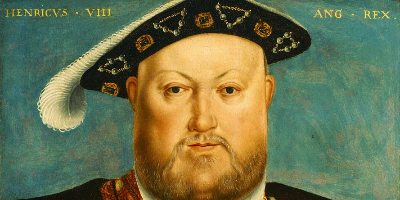jun 17, 1497 - The Cornish Rebellion [Battle of Deptford Bridge]
Description:
A series of actions by King Henry VII in late 1496 and early 1497 increased the immediate hardships of many of his subjects, especially in Cornwall.In 1496, after disagreements regarding new regulations for the tin-mining industry, the king, working partly through the Duchy of Cornwall, suspended the operation and privileges of the Cornish stannaries', a major part of the economy of the county. The privileges, which included exemption from certain royal and local taxes, had been granted under a deal with Edward I in 1305
Being threatened in 1496–7 with invasion by the Scottish king and the pretender Perkin Warbeck, Henry VII levied an extraordinary series of financial demands on his subjects: a forced loan in late 1496, and in early 1497 a double portion of fifteenths and tenths taxation and a special subsidy levy. The burden fell more heavily on Cornwall than most areas, particularly in the collection of the forced loan.
An army some 15,000 strong marched into Devon, attracting support in the form of provisions and recruits as they went.[13] In Devon, however, support for the rebellion was far lower than in Cornwall, probably because the stannaries there had accepted new regulations in 1494, and had avoided the penalties inflicted on their Cornish counterparts.
Entering Somerset, the rebel army came to Taunton, where it is reported that they killed one of the commissioners of the subsidy, i.e. a collector of the offending tax. At Wells they were joined by James Touchet, the seventh Baron Audley, who had already been in correspondence with An Gof and Flamank. As a member of the nobility with military experience he was gladly received and acclaimed as their leader. The rebels then continued towards London, marching via Salisbury and Winchester.
An Gof and Flamank were executed at Tyburn on 27 June 1497. The two of them had been sentenced to be hanged, drawn and quartered. However the king accorded them the mercy of a quicker death, by hanging only, before their bodies were decapitated and quartered, their heads were set on London Bridge, the quarters of Flamank on four of the city gates, and the quarters of An Gof sent to be displayed at various points in Cornwall and Devon.
Audley, as a peer of the realm, was beheaded on 28 June at Tower Hill. His head was displayed on London Bridge.
In due course, severe monetary penalties, extracted by Crown agents, pauperised sections of Cornwall for years to come. Estates were seized and handed to more loyal subjects. After the phase of punishment, however, in 1508 the king acted to redress the Cornish grievances. He granted a pardon to the tinners for continuing to produce tin in contravention of the Duchy of Cornwall's regulations; the regulations themselves were rescinded; and the power of the Cornish Stannary Parliament to approve any regulations in the industry was reinstated.
Added to timeline:
Date:
jun 17, 1497
Now
~ 528 years ago
